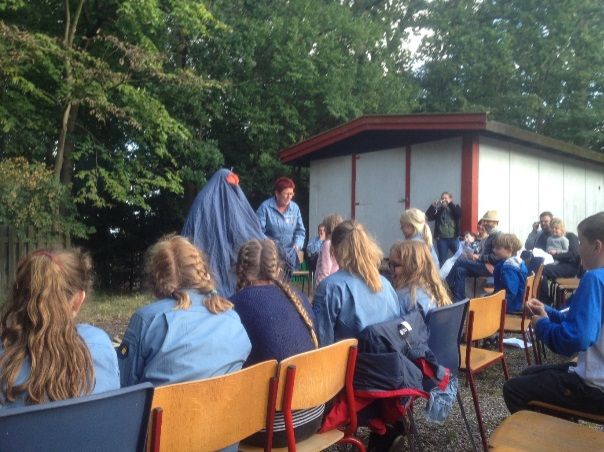The Danish Christian youth organisation Frivilligt Drenge- og Pige-Forbund (FDF) has refuted claims that a performance at one of its summer camps near Mesinge on Fyn was “racist” and “discriminatory” to Muslims.
Rust, the University of Southern Denmark’s student magazine, claims the performance – which was mainly aimed at, performed by and attended by young children – made use of a burka in a way that was “anti-Islamic”.
Causing an online storm
Since its publication, the story has been hotly debated, with many coming to FDF’s defence to argue the performance was misunderstood as it is an updated version of a traditional tale that many Danes are familiar with. The burka has no bearing on its central message, they claim.
In FDF’s version, the burka is used to cover the face of ‘The Ugliest Man In The World’. Several performers gaze on his face and drop down dead instantly. A member of the audience is then invited to try, at which point the Ugliest Man dies, passing on his title as he does so.
“Like a minstrel show”
“The children took to their seats and one of the camp organisers slinked off behind an outhouse,” Rust magazine reported.
“The camp organiser then ran out from behind the outhouse dressed in a mock Burka shouting what was either imitation Arabic or Farsi.”
The Rust reporter, who was in attendance but is not an FDF member, described the performance as “a mid-19th century blackface minstrel show”. The audience, which ranged from toddlers to pensioners, “laughed and revelled at the spectacle”.
“Four or five blonde Danish children aged about six to twelve took it in turns to lift up the burka,” the report continued. “Upon witnessing the ugliness of the vile Muslim female, [the children] fell dead. A heroic Nordic man arose from the crowd to banish the evil. This was all followed by the Lord’s Prayer.”
Could have been another garment
FDF was quick to reject any accusations of racism or discrimination, contending that the burka could easily have been another garment.
“FDF is neither racist nor discriminatory,” it told the Copenhagen Post in a statement that it later posted on the Rust website.
“At FDF, and especially during a summer camp, there are special efforts to build a strong community with room for everyone and where good relations are the centre of attention. The performance, in question, is from a local summer camp, where the burka is used as a prop in a sketch, equal to a sombrero, kilt or any other foreign garment – and is in no way used to make fun of neither Muslims nor their religion.”
“The impression the performance has made on some members of the audience is far from the general spirit at both the local FDF group as well as FDF as a national organisation.”
Apologetic for offence
However, the spokesperson conceded that the performance could be misinterpreted out of context.
“We are sorry for the misunderstanding this has caused,” the statement continued.
“We are thus sorry that someone has been offended by this performance; it was in no way the intention. The local FDF group who made the performance is naturally unhappy that it caused offence.”














